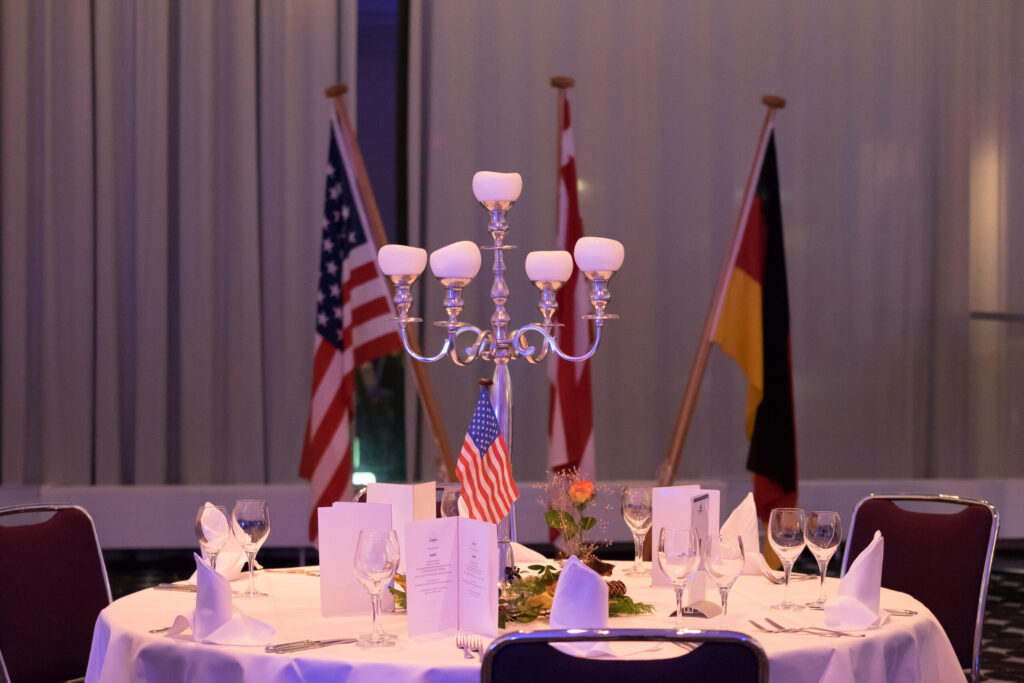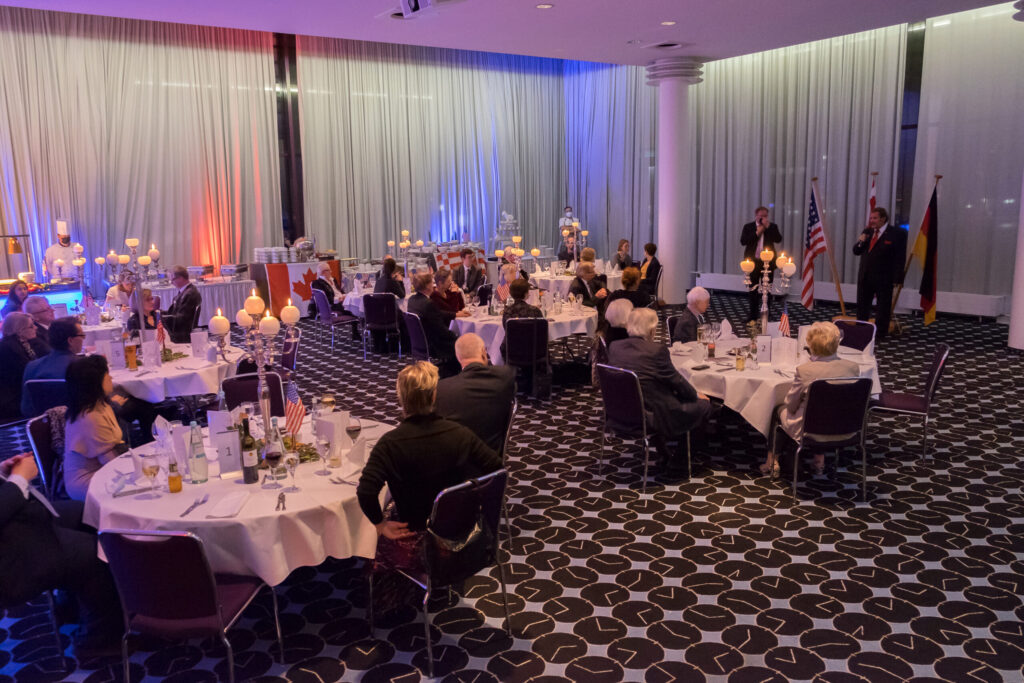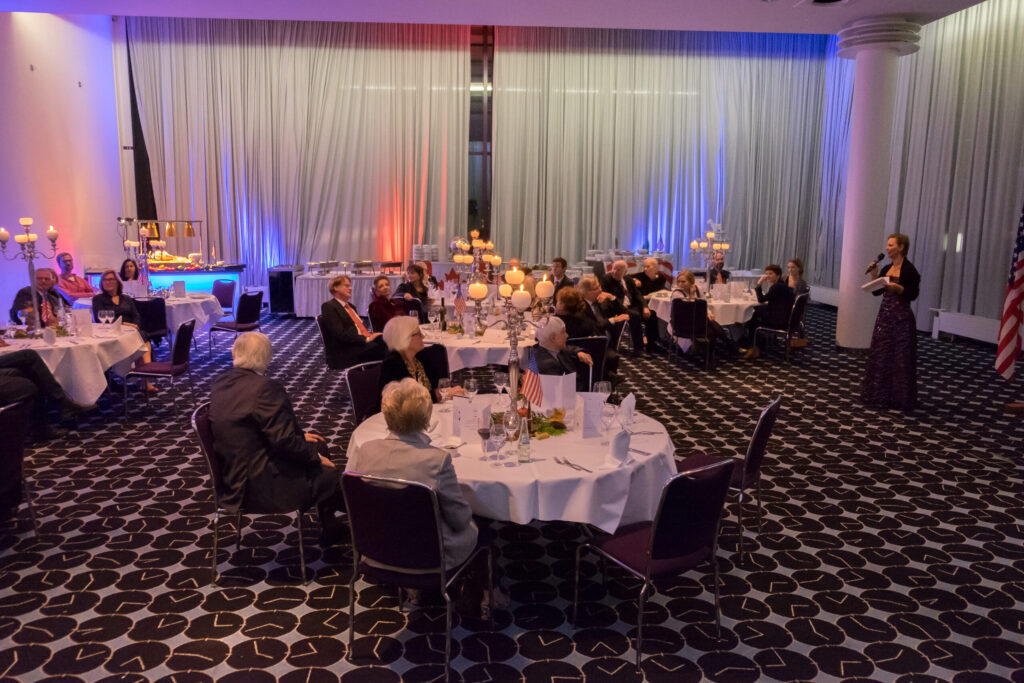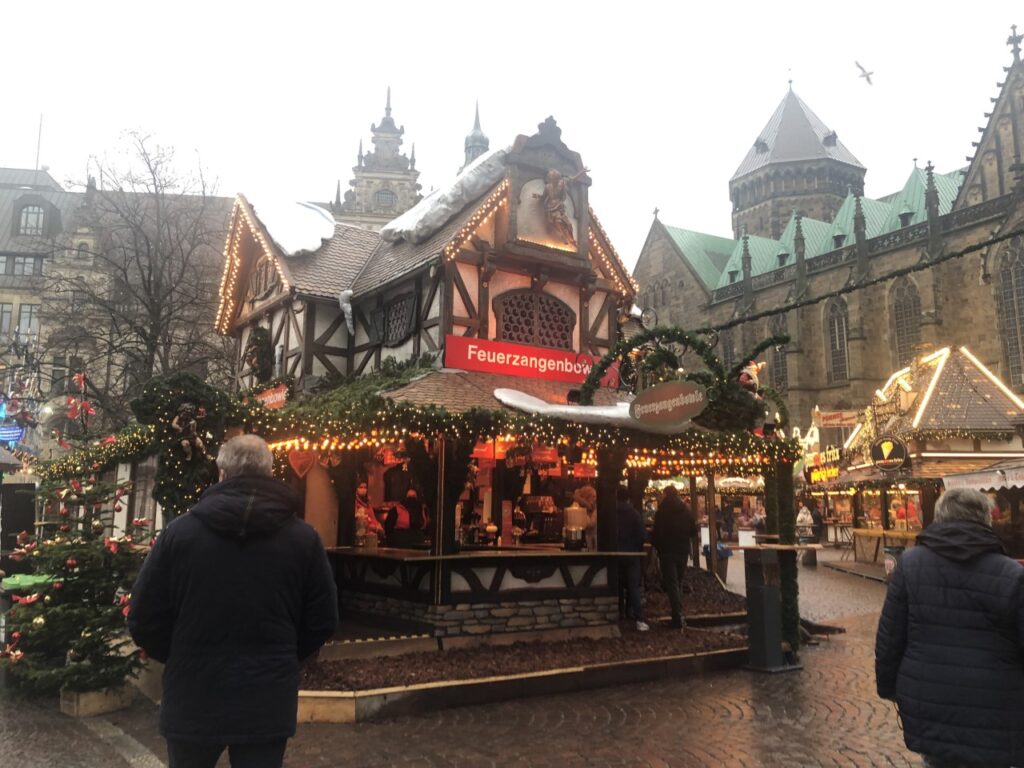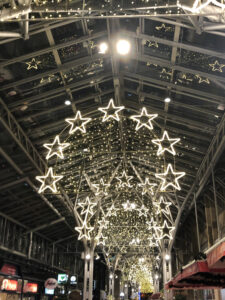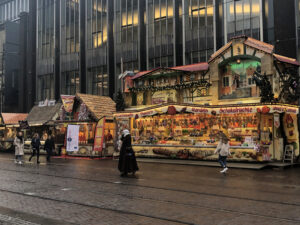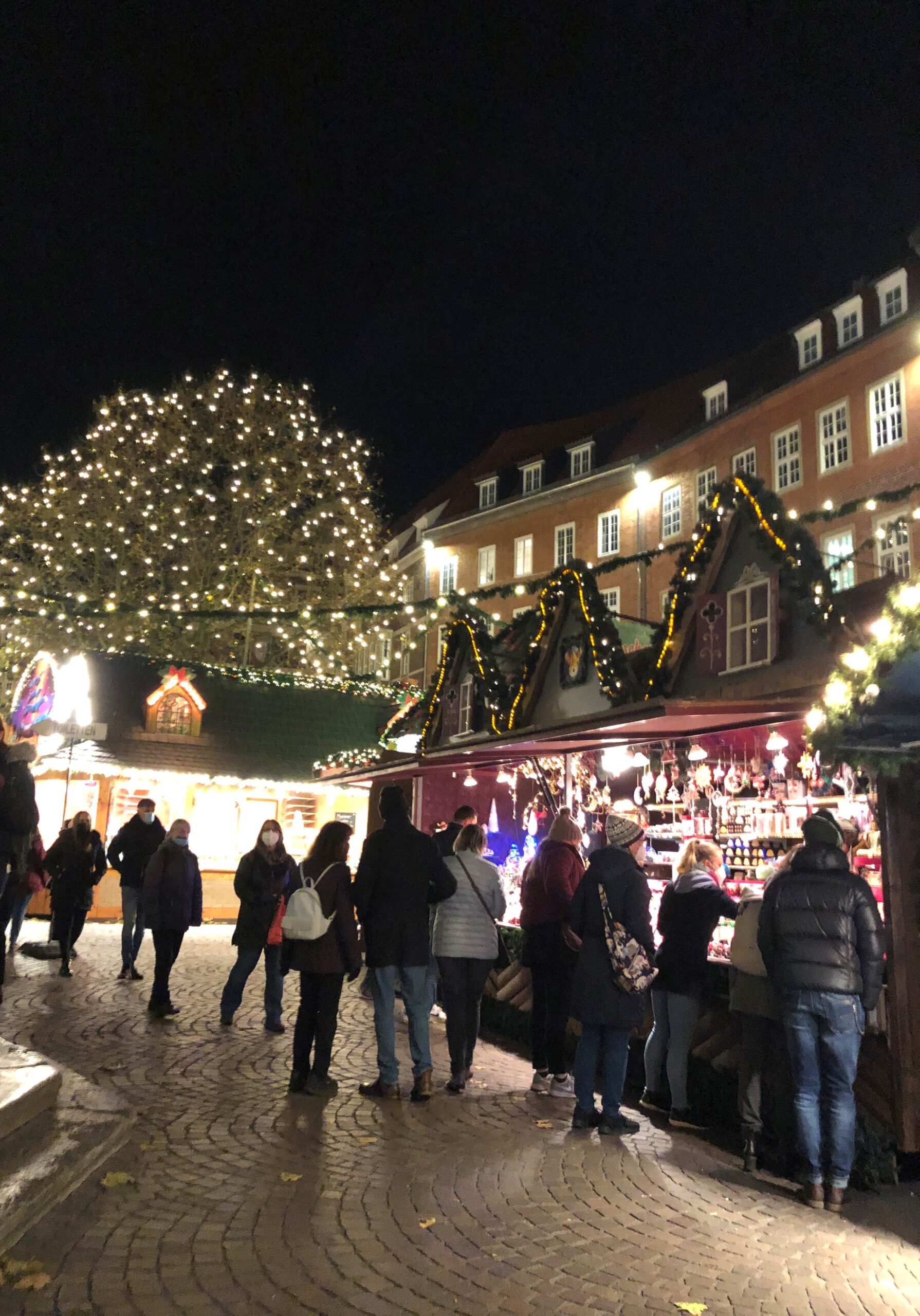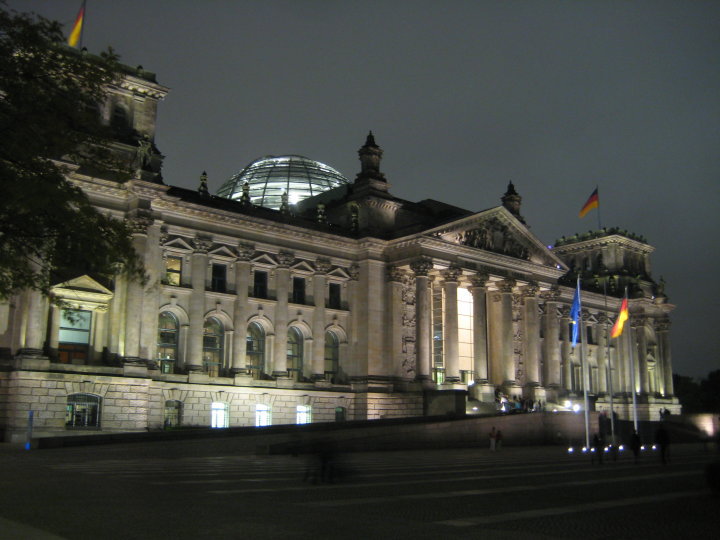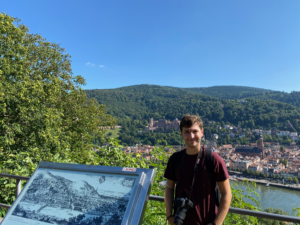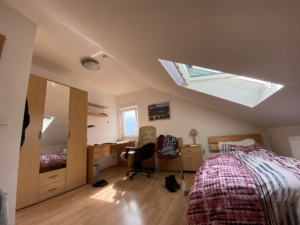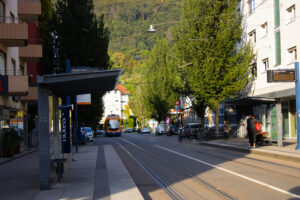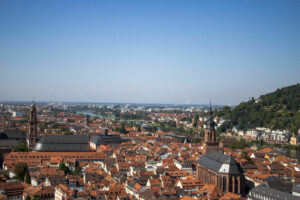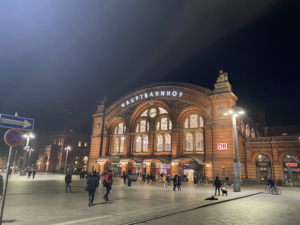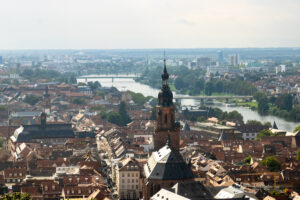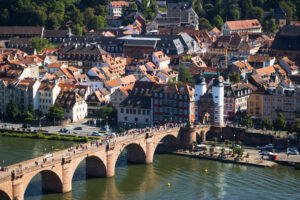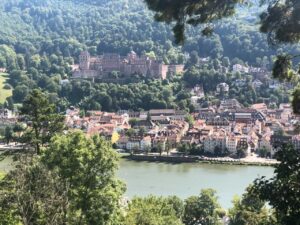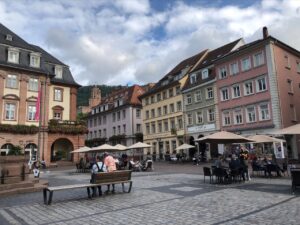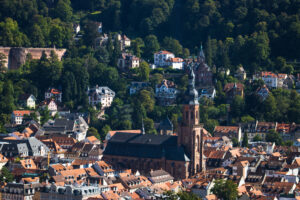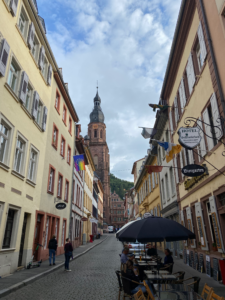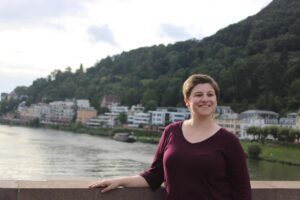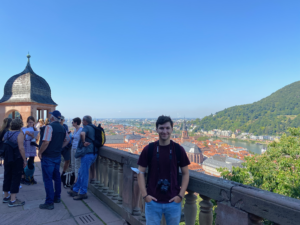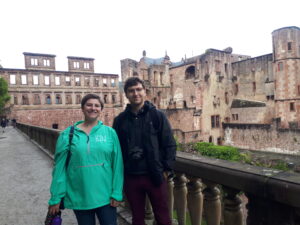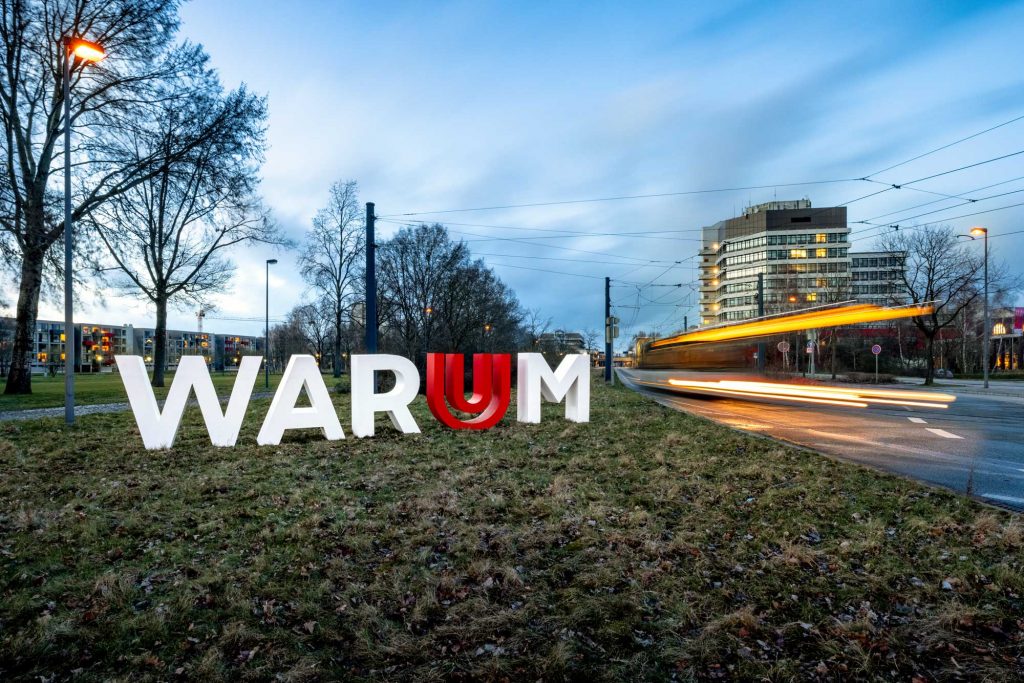by Dr. Janine Ludwig
In response to the pandemic, Dickinson College developed the innovative format of the Globally Integrated Seminar (GIS) with many of our study-abroad sites. For Bremen, I was conducting a class on “Germany and the Cold War” this spring semester.
This seminar covered political and cultural developments in Germany throughout the 20th century. Through critical engagement with texts, documentaries and films, we tried to understand how people have felt about their times and the future, about modernity, about the block confrontation, their governments, and much more. We also occasionally examined the images of America that Germans produced at different times. The division of Germany, Europe and the world into East and West was discussed up to the revolution of 1989, which contributed to the fall of the Soviet Union and led to German reunification as well as the eastward expansion of the European Union.

We started with the German Empire around 1900, World War I and the Russian Revolution, continued with World War II and the separation of Germany and then delved into the history of the two Germanies. Finally, we analyzed the peaceful revolution of 1989 and German runification as well as Ostalgie (nostalgia for the East). Every week, the students wrote a blog post answering a specific question related to the readings. While we were watching films, we chatted and commented on what we saw or discussed questions that occurred.
In order to offer international experiences and discussions to our students, we invited several high-level German guests to the sessions. Among them was Egon Krenz, Head of State of the GDR in the fall of 1989, who answered critical questions, for instance about his current judgment on socialism, about the moment he realized that his government was losing control and why he thinks the socialist Eastern Bloc eventually lost the Cold War. He described how accidental the fall of the Berlin Wall actually was and what the immediate Russian reaction was that he received.
Here are some students’ comments from anonymous evaluations:
“One of my favorite classes that I have taken at Dickinson.”
“This was one of the best discussion-based classes I’ve had at Dickinson, I enjoyed the openness of the professor to other pollical ideas and hard questions. She always tried to answer them the best she could without any prejudice and it was incredibly helpful.”
“Professor Ludwig’s enthusiasm helped make engagement in this course a meaningful experience.”
“Fantastic instructor, who showed great interest in the subject matter.”
“I liked the way the course was structured a lot.”
“This was a great course and I really enjoyed the professor’s teachings! I hope to hold onto what I learned in this class for the rest of my life. There was a lot of great life lessons mixed in with the political talks that we had.”
“This course challenged my language skills through the readings, writings and watching the films. I learned more about Germany’s history than I did before and want to continue to learn.”
“Amazing as always. Incredibly receptive to student feedback and opinions, understanding, very passionate about the subject material and about students doing well.”
“I know I was quiet again this semester. Zoom classes make me incredibly anxious which makes it incredibly difficult to participate often. But I did enjoy the class and learn a lot, and I’m going to miss Professor Ludwig a lot.”
“Dr Ludwig was very interested in the material we were learning, and her personal interest and input on content made the class more enjoyable. The classroom learning atmosphere was very comfortable. It felt that anybody could contribute and say what they wanted to say.”
And this is what two students wrote as open feedback:
“The Egon Krenz talk was truly fascinating and something I will never forget. It was really cool to speak with a former DDR leader, who was the leader when the Berlin Wall fell. While we both had different views on the world, we were able to have a very interesting discussion about topics like the Cold War, Donald Trump, and current world politics.” >Mac Tambussi ’23<
“I enjoyed Dr. Ludwig’s seminar examining Germany’s relationship to the Cold War not only because it was the first course I had ever taken about German history, but also because I was living with my German relatives for the first half of the semester and the course’s content helped me start some very interesting discussions with them. As a German major and a musician at Dickinson, I was also particularly fascinated by the history of Rock music in the GDR and how the attitude of government’s attitudes towards the genre shifted over time.” >Nick Rickert ‘23<

